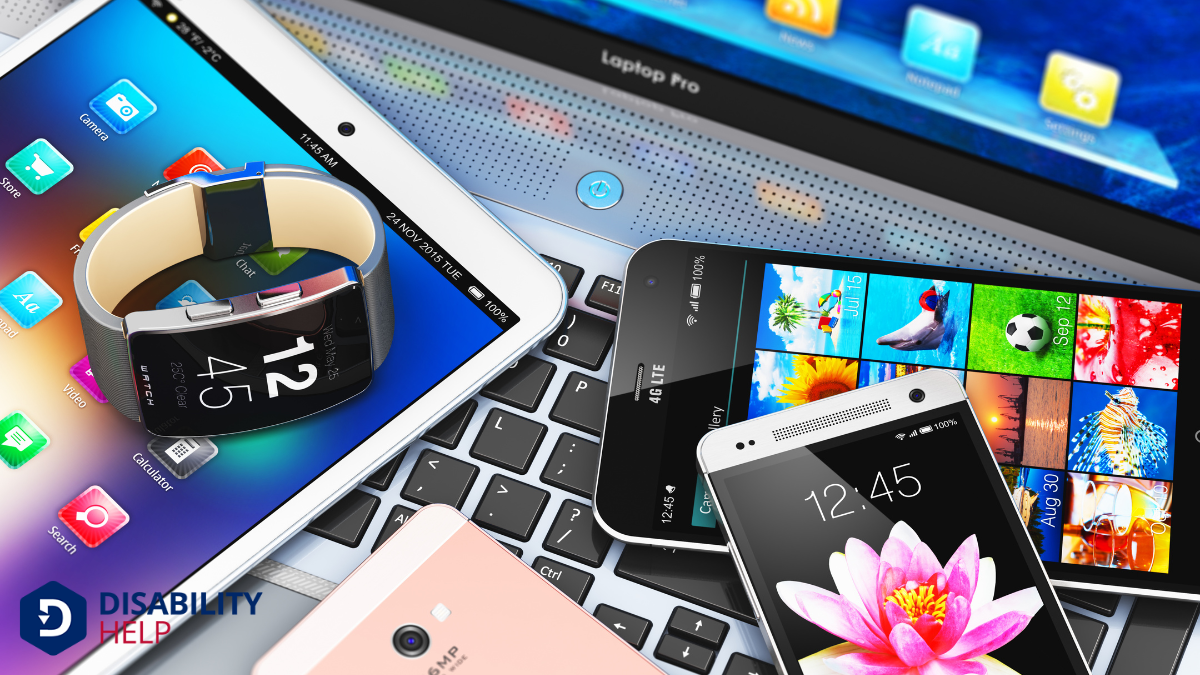When we explore assistive technology, we often talk about three main types: mobility aidsDevices designed to help individuals move around more easily, such as canes, walkers, or wheelchairs..., communication devices, and sensory enhancements. Each plays a vital role in enhancing the lives of individuals with disabilities. Mobility aids help with independence, communication devices allow expression, and sensory enhancements improve interaction. But how do these technologies truly impact daily life, and what innovations are on the horizon? Let's uncover the details together.
Key Takeaways
- Mobility aids enhance independence for individuals with mobility challenges, including wheelchairs, walkers, and canes.
- Communication devices assist those with communication challenges, such as speech-generating devices and communication boards.
- Sensory enhancements support individuals with sensory impairments, including hearing aids and screen readers.
- Assistive technology types are focused on mobility, communication, and sensory interaction support.
- These technologies improve quality of life, fostering independence and social inclusionThe practice of creating environments in which any individual or group can be and feel welcomed, res....
Mobility Aids
Mobility aids play an essential role in enhancing the independence and quality of life for individuals with mobility challenges. They come in various forms, each designed to meet different needs.
We often see wheelchairs, walkers, and canes as primary options. These devices help us move around more easily, allowing us to navigate our environments with greater freedom. By using mobility aids, we can participate more fully in daily activities, maintaining our autonomy and social connections.
When choosing a mobility aid, it’s important to take into account the specific requirements and preferences of the user. Comfort, ease of use, and the environment where the aid will be used are critical factors.
Let's guarantee that everyone has access to the right tools to support their mobility and independence.
Communication Devices

While mobility aids help us move, communication devices bridge the gap between individuals with communication challenges and the world around them. These tools empower us to express thoughts, needs, and emotions more effectively. Devices like speech-generating tools, communication boards, and text-to-speech apps are essential for individuals with speech impairments or cognitive challenges. They enhance our ability to interact, participate in conversations, and engage socially.
Let’s consider the profound impact of a simple voice output device or a specialized app on a tablet. These technologies transform how we connect with others, fostering inclusion and understanding.
Sensory Enhancements
When it comes to sensory enhancements, a variety of technologies offer invaluable support to those with sensory impairments. These tools improve how individuals interact with their environment, making daily life more accessible.
For those with hearing impairments, devices like hearing aids and cochlear implants amplify sound, allowing us to engage in conversations and enjoy music. For visual impairments, screen readers and magnifying software transform text into speech or enlarge content on screens, helping us access written information easily.
Tactile enhancements, like Braille displays, convert digital text into Braille, enabling us to read text messages or emails. Vibrating alarms and alerting systems also help us stay aware of our surroundings.
Ultimately, these technologies empower us, fostering independence and enhancing our quality of life.
Conclusion
In conclusion, we've explored the three main types of assistive technology: mobility aids, communication devices, and sensory enhancements. These tools play an essential role in empowering individuals with disabilities, helping them navigate their environments more independently and engage more fully with the world around them. By understanding and embracing these technologies, we're not just improving quality of life, but also fostering a more inclusive society where everyone has the opportunity to thrive. Let's continue to support and innovate in this important field.






